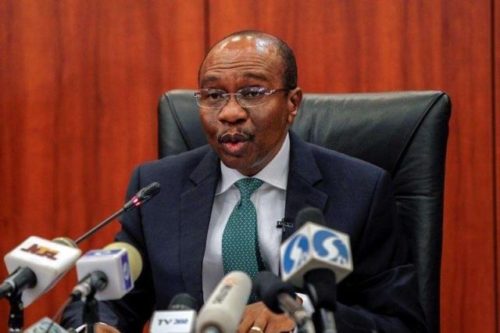
The Governor of the Central Bank of Nigeria, Godwin Emefiele on Tuesday said the bank will restrict foreign exchange for the importation of milk into Nigeria.
Emefiele made this known on Tuesday while addressing journalists at the end of the two-day meeting of the monetary policy committee of the bank.
He said $1.2 billion to $1.5 billion is spent every year to import milk.
“We believe that milk is one of those products that can be produced in Nigeria. Milk importation has been going on in Nigeria for over 60 years. If you Google West African Milk or Friesland Campina today, they say that they have been importing milk and that they have been in Nigeria for over 60 years.
“Today, the import of milk annually stands at $1.2 to $1.5 billion. That is a very high import product into the country. Given that it is a product that we are convinced that it is a product that can be produced in Nigeria.
“The reason some say that our cows are not producing much milk is that our cows roam around, they don’t have water to drink.
“When the policy on the restriction of FX started, we considered including milk to the list. Then we thought that based on the sentiments that people would show, that we should be careful,” the apex bank governor said.
Emefiele said the bank held meetings with leading milk producers in the country to encourage them to begin the process of producing milk in 2016 however, there was no significant progress on the part of the companies.
“When we have a policy, we want people to respect the policy of this country. We are saying the amount we spend on milk in this country is too high, we need to reduce it.
“We are determined to make milk production in Nigeria a viable economic proposition. If you need a loan to acquire land, do artificial insemination, grow grass or even provide water, we will give you.
“We are getting to the end of the road of milk importation in Nigeria. The era of restriction of forex for the importation of milk is very close, sooner than they expect. West Africa came and accepted that they would join this initiative for dairy production. After a week again, we called another meeting and they had changed their position because they had spoken to their principals and those ones said they will not change policy.
“If they will not change their policy, we will not change our policy. We want people to produce milk in Nigeria,” he added.